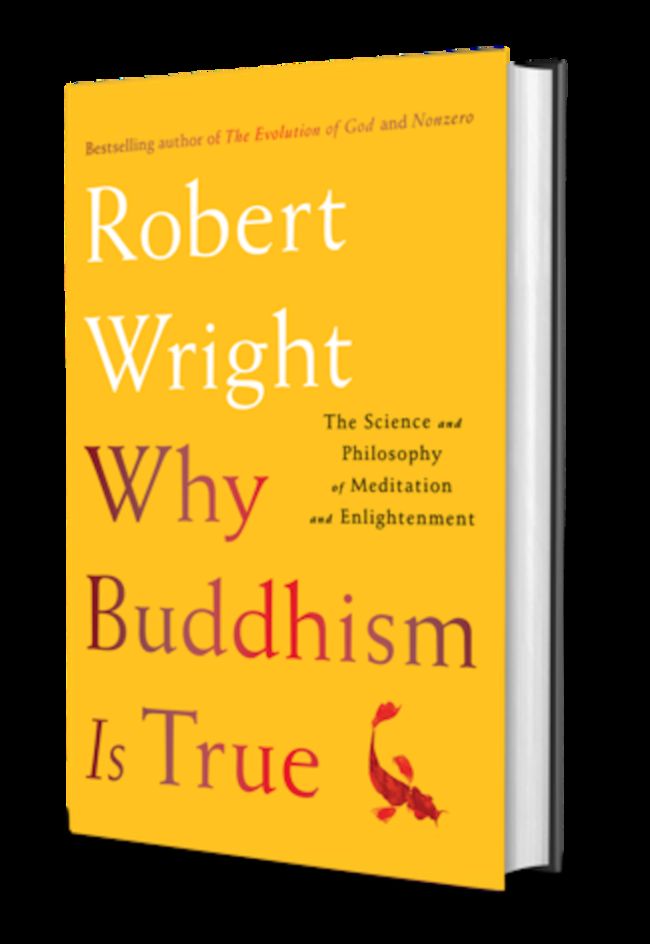Python字符串比较:如何判断两个字符串是否相等?
程序员杨弋
Python全栈工程师学习指南python开发语言
在Python编程中,字符串是最常用的数据类型之一。当我们需要比较两个字符串时,通常需要判断它们是否相等。这篇文章将详细介绍Python中比较两个字符串的方法。1、使用“==”运算符比较字符串在Python中,可以使用“==”运算符比较两个字符串是否相等。这个运算符返回True,表示两个字符串相等,返回False,表示两个字符串不相等。例如:str1="hello"str2="hello"ifst
单线程执行器(`SingleThreadedExecutor`)来处理节点的任务
课堂随想
moveit2机器人
intmain(intargc,char**argv){rclcpp::init(argc,argv);rclcpp::NodeOptionsnode_options;node_options.automatically_declare_parameters_from_overrides(true);automove_group_node=rclcpp::Node::make_shared("mo
C# 禁止程序重复启动
wiseyao1219
c#
修改:Program.cs[STAThread]staticvoidMain(){Mutexmutex=newMutex(true,"NewGuid123456",outboolisCreatedNew);if(!isCreatedNew){MessageBox.Show(Application.ProductName+"isrunning...");return;}Application.Ena
【C#Mutex】 initiallyOwned错误引起的缺陷
闻缺陷则喜何志丹
c#互斥量进程同步WaitOneinitiallyOwned临界区
临界区只能对同一个进程的不同线程同步,互斥量可以跨进程同步。典型应用场景:两个exe会操作同一个注册表项。错误代码封装类publicclassCMutexHelp:IDisposable{publicCMutexHelp(){s_mutex.WaitOne();}privatestaticMutexs_mutex=newMutex(true,"Time202409091406ab");public
好看的vue登录页面(附 源代码 背景图)
小小薛定谔
vue.jsjavascriptcss前端
一、效果展示二、代码你好!欢迎回来登录忘记密码?注册exportdefault{name:"MedLogin",data(){return{confirm_disabled:false,loginForm:{no:'',password:''},rules:{no:[{required:true,message:'请输入账号',trigger:'blur'},{min:3,max:6,messag
【docker npm】npm 私库
琴 韵
dockernpm容器
1.部署环境window11x64DockerDesktop4.34.1(166053)DockerEnginev27.2.01.1.Docker镜像源1.1.1.DockerEngine配置{"builder":{"features":{"buildkit":true},"gc":{"defaultKeepStorage":"32GB","enabled":true}},"experimenta
Java的迭代器接口
shymoy
java开发语言
文章目录是什么iterator内部方法iterabe内部方法如何实现是什么iteratorIterator是java中用于遍历集合中元素的一个接口,提供了一种通用方法来遍历集合中的元素。内部方法booleanhasNext():检查是否还有下一个元素。如果有,返回true,否则返回false。Tnext():返回集合中的下一个元素。voidremove():从集合中移除最后一次调用next()返回
详解 Pandas 的 isin 用法
文刀小桂
Pandaspandaspython
Pandas的isin()方法可以判断数据值是否在某个数据集合中,若与集合中的某个值相等则返回True,反之返回False。importpandasaspddf=pd.DataFrame({"title":["one","two","three","four"],"type":["small","common","middle","large"],"num":[10,20,30,40]})#1.判
html加载界面发送ajax请求
足球数据分析
htmlajax前端
html加载界面发送ajax请求makeAjaxRequest();functionmakeAjaxRequest(){varxhr=newXMLHttpRequest();//创建一个新的XMLHttpRequest对象xhr.open('GET','yourUrlPath',true);//配置请求,设置请求类型、URL和是否异步xhr.send();//发送请求}
python如何判断NoneTpye
#如花
opencv人工智能计算机视觉python
python如何判断NoneTpye最近用python-opencv解析多个视频文件,解析到第一个视频的最后一帧,出现了NoneTpye报错为了让循环继续,需要判断解析出来的图片是否为NoneType。试了几种方法#第一种方法img==None当img为空时,表达式为True。但是当img解析出了图片时,返回的是一个array,大小和img一致。正确写法imgisNone用isNone判断None
Taro实现微信小程序自定义拍照截图识别
书边事.
taro微信小程序小程序
效果图:代码:>请对准框内拍摄题目重新拍照文件处理中...开始识别definePageConfig({navigationStyle:"custom",navigationBarTitleText:"",//启用页面分享//enableShareAppMessage:true,//启动朋友圈分享//enableShareTimeline:true});import{reactive,toRefs,
【拖拽】自定义拖拽图标
风露_
一、知识点设置被拖拽的元素draggable为true(HTML5新特性)关键方法:voiddataTransfer.setDragImage(img,xOffset,yOffset);注意点:Note:Ifthe[Element]isanexisting[HTMLElement],itneedstobevisibleintheviewportinordertobeshownasadragfeed
JAVA常用校验注解
小卡车555
java
引入依赖org.springframeworkspring-boot-starter-validation2.6.13相关注解及使用说明注解描述@AssertFalse所注解的元素必须是Boolean类型,且值为false@AssertTrue所注解的元素必须是Boolean类型,且值为true@DecimalMin验证Number和String对象是否大于等于指定的值,支持小数@DecimalM
手撸vue3核心源码——响应式原理(isRef和unRef)
前端不是渣男
前端vue.js
今天来实现一下ref的功能函数,isRef与unRefisRefisRef和isReactive一样,都是用于检测数据类型,isRef是检测是不是一个ref对象,跟isReactive函数实现起来一样,我们先来写一个单元测试这里要实现的功能是,检测ref对象肯定就通过返回true,检测普通类型数据以及reactive对象都是falseit("itshouldreturnaboolean",()=>
vue3 | isRef、unref、toRef、toRefs
杨贵妃会飞飞飞
Vuevue.js前端
isRef检查某个值是否是ref。是返回true,否则返回false。constnum=ref(10)constnum1=20constnum2=reactive({data:30})console.log(isRef(num))//trueconsole.log(isRef(num1))//falseconsole.log(isRef(num2))//falseunref()如果参数是ref,则
uniapp+uview-plus实现微信小程序自定义tabbar
yx_back
小程序前端uniappuni-app微信小程序uview-plus
参考文档微信小程序相关开发文档链接:https://developers.weixin.qq.com/miniprogram/dev/framework/ability/custom-tabbar.html虽然是uniapp框架但是实现方式和原生小程序相似实现思路1、app.json里面tabBar添加配置custom:true,其他和非自定义设置一样2、在components文件夹里添加Tabb
2024年CSP-J初赛备考建议
再临TSC
c++杂谈c++学习
针对2024年CSP-J(ComputerSciencePrinciplesJunior,即计算机科学原理初级认证)的备考,首先,先来看考试可能考的东西:动规(包括背包问题),主要在程序阅读还有程序补全题考,这方面,了解动规的原理就可以轻松拿分高精,也是在阅读和补全题,了解原理即可,Z2~Z3应该就学高精了深搜广搜,基础题可能会给你一个片段,然后问你这是什么算法,或者,问你下列选项中哪个正确,给你
treeselect只选了分支节点全选_vue Treeselect 树形下拉框:获取选中节点的ids和lables操作...
weixin_39637285
API:https://vue-treeselect.js.org/#events1.ids:即value1.lable:需要用到方法:@select(node,instanceId)和@deselect(node,instanceId)v-model="DRHA_EFaultModeTree_value":multiple="true":options="DRHA_EFaultModeTree_
Scala学习之旅-对Option友好的flatMap
喝冰咖啡
scala学习
聊点什么OptionflatMapvs.OptionOption的作用在Java/Scala中,Optional/Option(本文还是以scala代码为例)是用来表示某个对象存在或者不存在,也就是说,Option是某个类型T的Wrapper,如果T!=null,Option(T).isDefined==true如果T==null,Option(T).isEmpty==true有了Option这层
unicorn 部署 FastAPI 应用程序
九品神元师
fastapi
本地部署本地开发调试过程中,我通常是这样启动Fastapi服务的在终端中运行:uvicornmain:app--host0.0.0.0--port80当然,也可以python脚本启动:importuvicornuvicorn.run(app="main:app",host="0.0.0.0",port=8088,reload=True)这样就好启动一个服务,reload=True支持热重载,方便
python sanic orm_sanic中使用tortoise-orm
Mr浪子相依
pythonsanicorm
#models.pyfromtortoise.modelsimportModelfromtortoiseimportfieldsclassUser(Model):id=fields.IntField(pk=True,,source_field="userID")name=fields.CharField(max_length=100)date_field=fields.DateTimeField(
说话与写作都是表达
乔的园子
一,确定自己的主题。开门见山表达自己的主要意思,避免给人不知道你在说什么。二,做分类2W1H原则:WhatWhyHow。告知别人主题内容是什么,你为什么要这样子做,然后你会怎么做。具体内容可以从三个方面来讲述,优势三个,劣势三个。三,重申主题,回归表达。图片发自App这是我早上听说话沟通课的学习内容,与我最近学习的写作课有异曲同工之妙。写作课上,老师教了我们万能的写作法,与这个步骤基本相同。第一,
【百日算法计划】:每日一题,见证成长(013)
码上一元
数据结构与算法算法
题目回文链表给你一个单链表的头节点head,请你判断该链表是否为回文链表。如果是,返回true;否则,返回false。输入:head=[1,2,2,1]输出:true思路找到中间节点反转后半部分链表前后链表顺序比对publicbooleanisPalindrome2(ListNodehead){if(head==null||head.next==null)returntrue;ListNodep=
C语言几种判断语句简述
一杯烟火
C语言学习c语言开发语言
C判断判断结构要求程序员指定一个或多个要评估或测试的条件,以及条件为真时要执行的语句(必需的)和条件为假时要执行的语句(可选的)。C语言把任何非零和非空的值假定为true,把零或null假定为false。下面是大多数编程语言中典型的判断结构的一般形式:C中的判断语句判断语句C语言提供了以下类型的判断语句。点击链接查看每个语句的细节。语句描述if语句一个if语句由一个布尔表达式后跟一个或多个语句组成
pytorch安装(windows)
m0_62244898
windows人工智能
(1)下载pycharmPyCharm:thePythonIDEforProfessionalDevelopersbyJetBrains(2)下载anacondaAnaconda|TheWorld'sMostPopularDataSciencePlatform(3)创建一个新环境:torchcondacreate-ntorch-y(4)进入新环境condaactivatetorch(5)加入清华源
开发者关心的那些事
圣子足道
ios游戏编程apple支付
我要在app里添加IAP,必须要注册自己的产品标识符(product identifiers)。产品标识符是什么?
产品标识符(Product Identifiers)是一串字符串,它用来识别你在应用内贩卖的每件商品。App Store用产品标识符来检索产品信息,标识符只能包含大小写字母(A-Z)、数字(0-9)、下划线(-)、以及圆点(.)。你可以任意排列这些元素,但我们建议你创建标识符时使用
负载均衡器技术Nginx和F5的优缺点对比
bijian1013
nginxF5
对于数据流量过大的网络中,往往单一设备无法承担,需要多台设备进行数据分流,而负载均衡器就是用来将数据分流到多台设备的一个转发器。
目前有许多不同的负载均衡技术用以满足不同的应用需求,如软/硬件负载均衡、本地/全局负载均衡、更高
LeetCode[Math] - #9 Palindrome Number
Cwind
javaAlgorithm题解LeetCodeMath
原题链接:#9 Palindrome Number
要求:
判断一个整数是否是回文数,不要使用额外的存储空间
难度:简单
分析:
题目限制不允许使用额外的存储空间应指不允许使用O(n)的内存空间,O(1)的内存用于存储中间结果是可以接受的。于是考虑将该整型数反转,然后与原数字进行比较。
注:没有看到有关负数是否可以是回文数的明确结论,例如
画图板的基本实现
15700786134
画图板
要实现画图板的基本功能,除了在qq登陆界面中用到的组件和方法外,还需要添加鼠标监听器,和接口实现。
首先,需要显示一个JFrame界面:
public class DrameFrame extends JFrame { //显示
linux的ps命令
被触发
linux
Linux中的ps命令是Process Status的缩写。ps命令用来列出系统中当前运行的那些进程。ps命令列出的是当前那些进程的快照,就是执行ps命令的那个时刻的那些进程,如果想要动态的显示进程信息,就可以使用top命令。
要对进程进行监测和控制,首先必须要了解当前进程的情况,也就是需要查看当前进程,而 ps 命令就是最基本同时也是非常强大的进程查看命令。使用该命令可以确定有哪些进程正在运行
Android 音乐播放器 下一曲 连续跳几首歌
肆无忌惮_
android
最近在写安卓音乐播放器的时候遇到个问题。在MediaPlayer播放结束时会回调
player.setOnCompletionListener(new OnCompletionListener() {
@Override
public void onCompletion(MediaPlayer mp) {
mp.reset();
Log.i("H
java导出txt文件的例子
知了ing
javaservlet
代码很简单就一个servlet,如下:
package com.eastcom.servlet;
import java.io.BufferedOutputStream;
import java.io.IOException;
import java.net.URLEncoder;
import java.sql.Connection;
import java.sql.Resu
Scala stack试玩, 提高第三方依赖下载速度
矮蛋蛋
scalasbt
原文地址:
http://segmentfault.com/a/1190000002894524
sbt下载速度实在是惨不忍睹, 需要做些配置优化
下载typesafe离线包, 保存为ivy本地库
wget http://downloads.typesafe.com/typesafe-activator/1.3.4/typesafe-activator-1.3.4.zip
解压r
phantomjs安装(linux,附带环境变量设置) ,以及casperjs安装。
alleni123
linuxspider
1. 首先从官网
http://phantomjs.org/下载phantomjs压缩包,解压缩到/root/phantomjs文件夹。
2. 安装依赖
sudo yum install fontconfig freetype libfreetype.so.6 libfontconfig.so.1 libstdc++.so.6
3. 配置环境变量
vi /etc/profil
JAVA IO FileInputStream和FileOutputStream,字节流的打包输出
百合不是茶
java核心思想JAVA IO操作字节流
在程序设计语言中,数据的保存是基本,如果某程序语言不能保存数据那么该语言是不可能存在的,JAVA是当今最流行的面向对象设计语言之一,在保存数据中也有自己独特的一面,字节流和字符流
1,字节流是由字节构成的,字符流是由字符构成的 字节流和字符流都是继承的InputStream和OutPutStream ,java中两种最基本的就是字节流和字符流
类 FileInputStream
Spring基础实例(依赖注入和控制反转)
bijian1013
spring
前提条件:在http://www.springsource.org/download网站上下载Spring框架,并将spring.jar、log4j-1.2.15.jar、commons-logging.jar加载至工程1.武器接口
package com.bijian.spring.base3;
public interface Weapon {
void kil
HR看重的十大技能
bijian1013
提升能力HR成长
一个人掌握何种技能取决于他的兴趣、能力和聪明程度,也取决于他所能支配的资源以及制定的事业目标,拥有过硬技能的人有更多的工作机会。但是,由于经济发展前景不确定,掌握对你的事业有所帮助的技能显得尤为重要。以下是最受雇主欢迎的十种技能。 一、解决问题的能力 每天,我们都要在生活和工作中解决一些综合性的问题。那些能够发现问题、解决问题并迅速作出有效决
【Thrift一】Thrift编译安装
bit1129
thrift
什么是Thrift
The Apache Thrift software framework, for scalable cross-language services development, combines a software stack with a code generation engine to build services that work efficiently and s
【Avro三】Hadoop MapReduce读写Avro文件
bit1129
mapreduce
Avro是Doug Cutting(此人绝对是神一般的存在)牵头开发的。 开发之初就是围绕着完善Hadoop生态系统的数据处理而开展的(使用Avro作为Hadoop MapReduce需要处理数据序列化和反序列化的场景),因此Hadoop MapReduce集成Avro也就是自然而然的事情。
这个例子是一个简单的Hadoop MapReduce读取Avro格式的源文件进行计数统计,然后将计算结果
nginx定制500,502,503,504页面
ronin47
nginx 错误显示
server {
listen 80;
error_page 500/500.html;
error_page 502/502.html;
error_page 503/503.html;
error_page 504/504.html;
location /test {return502;}}
配置很简单,和配
java-1.二叉查找树转为双向链表
bylijinnan
二叉查找树
import java.util.ArrayList;
import java.util.List;
public class BSTreeToLinkedList {
/*
把二元查找树转变成排序的双向链表
题目:
输入一棵二元查找树,将该二元查找树转换成一个排序的双向链表。
要求不能创建任何新的结点,只调整指针的指向。
10
/ \
6 14
/ \
Netty源码学习-HTTP-tunnel
bylijinnan
javanetty
Netty关于HTTP tunnel的说明:
http://docs.jboss.org/netty/3.2/api/org/jboss/netty/channel/socket/http/package-summary.html#package_description
这个说明有点太简略了
一个完整的例子在这里:
https://github.com/bylijinnan
JSONUtil.serialize(map)和JSON.toJSONString(map)的区别
coder_xpf
jqueryjsonmapval()
JSONUtil.serialize(map)和JSON.toJSONString(map)的区别
数据库查询出来的map有一个字段为空
通过System.out.println()输出 JSONUtil.serialize(map): {"one":"1","two":"nul
Hibernate缓存总结
cuishikuan
开源sshjavawebhibernate缓存三大框架
一、为什么要用Hibernate缓存?
Hibernate是一个持久层框架,经常访问物理数据库。
为了降低应用程序对物理数据源访问的频次,从而提高应用程序的运行性能。
缓存内的数据是对物理数据源中的数据的复制,应用程序在运行时从缓存读写数据,在特定的时刻或事件会同步缓存和物理数据源的数据。
二、Hibernate缓存原理是怎样的?
Hibernate缓存包括两大类:Hib
CentOs6
dalan_123
centos
首先su - 切换到root下面1、首先要先安装GCC GCC-C++ Openssl等以来模块:yum -y install make gcc gcc-c++ kernel-devel m4 ncurses-devel openssl-devel2、再安装ncurses模块yum -y install ncurses-develyum install ncurses-devel3、下载Erang
10款用 jquery 实现滚动条至页面底端自动加载数据效果
dcj3sjt126com
JavaScript
无限滚动自动翻页可以说是web2.0时代的一项堪称伟大的技术,它让我们在浏览页面的时候只需要把滚动条拉到网页底部就能自动显示下一页的结果,改变了一直以来只能通过点击下一页来翻页这种常规做法。
无限滚动自动翻页技术的鼻祖是微博的先驱:推特(twitter),后来必应图片搜索、谷歌图片搜索、google reader、箱包批发网等纷纷抄袭了这一项技术,于是靠滚动浏览器滚动条
ImageButton去边框&Button或者ImageButton的背景透明
dcj3sjt126com
imagebutton
在ImageButton中载入图片后,很多人会觉得有图片周围的白边会影响到美观,其实解决这个问题有两种方法
一种方法是将ImageButton的背景改为所需要的图片。如:android:background="@drawable/XXX"
第二种方法就是将ImageButton背景改为透明,这个方法更常用
在XML里;
<ImageBut
JSP之c:foreach
eksliang
jspforearch
原文出自:http://www.cnblogs.com/draem0507/archive/2012/09/24/2699745.html
<c:forEach>标签用于通用数据循环,它有以下属性 属 性 描 述 是否必须 缺省值 items 进行循环的项目 否 无 begin 开始条件 否 0 end 结束条件 否 集合中的最后一个项目 step 步长 否 1
Android实现主动连接蓝牙耳机
gqdy365
android
在Android程序中可以实现自动扫描蓝牙、配对蓝牙、建立数据通道。蓝牙分不同类型,这篇文字只讨论如何与蓝牙耳机连接。
大致可以分三步:
一、扫描蓝牙设备:
1、注册并监听广播:
BluetoothAdapter.ACTION_DISCOVERY_STARTED
BluetoothDevice.ACTION_FOUND
BluetoothAdapter.ACTION_DIS
android学习轨迹之四:org.json.JSONException: No value for
hyz301
json
org.json.JSONException: No value for items
在JSON解析中会遇到一种错误,很常见的错误
06-21 12:19:08.714 2098-2127/com.jikexueyuan.secret I/System.out﹕ Result:{"status":1,"page":1,&
干货分享:从零开始学编程 系列汇总
justjavac
编程
程序员总爱重新发明轮子,于是做了要给轮子汇总。
从零开始写个编译器吧系列 (知乎专栏)
从零开始写一个简单的操作系统 (伯乐在线)
从零开始写JavaScript框架 (图灵社区)
从零开始写jQuery框架 (蓝色理想 )
从零开始nodejs系列文章 (粉丝日志)
从零开始编写网络游戏
jquery-autocomplete 使用手册
macroli
jqueryAjax脚本
jquery-autocomplete学习
一、用前必备
官方网站:http://bassistance.de/jquery-plugins/jquery-plugin-autocomplete/
当前版本:1.1
需要JQuery版本:1.2.6
二、使用
<script src="./jquery-1.3.2.js" type="text/ja
PLSQL-Developer或者Navicat等工具连接远程oracle数据库的详细配置以及数据库编码的修改
超声波
oracleplsql
在服务器上将Oracle安装好之后接下来要做的就是通过本地机器来远程连接服务器端的oracle数据库,常用的客户端连接工具就是PLSQL-Developer或者Navicat这些工具了。刚开始也是各种报错,什么TNS:no listener;TNS:lost connection;TNS:target hosts...花了一天的时间终于让PLSQL-Developer和Navicat等这些客户
数据仓库数据模型之:极限存储--历史拉链表
superlxw1234
极限存储数据仓库数据模型拉链历史表
在数据仓库的数据模型设计过程中,经常会遇到这样的需求:
1. 数据量比较大; 2. 表中的部分字段会被update,如用户的地址,产品的描述信息,订单的状态等等; 3. 需要查看某一个时间点或者时间段的历史快照信息,比如,查看某一个订单在历史某一个时间点的状态, 比如,查看某一个用户在过去某一段时间内,更新过几次等等; 4. 变化的比例和频率不是很大,比如,总共有10
10点睛Spring MVC4.1-全局异常处理
wiselyman
spring mvc
10.1 全局异常处理
使用@ControllerAdvice注解来实现全局异常处理;
使用@ControllerAdvice的属性缩小处理范围
10.2 演示
演示控制器
package com.wisely.web;
import org.springframework.stereotype.Controller;
import org.spring
